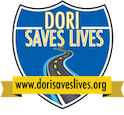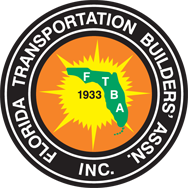1006.22 Safety and health of students being transported.—
Maximum regard for safety and adequate protection of health are primary requirements that must be observed by district school boards in routing buses, appointing drivers, and providing and operating equipment, in accordance with all requirements of law and rules of the State Board of Education in providing transportation pursuant to s. 1006.21:
(1)(a) District school boards shall use school buses, as defined in s. 1006.25, for all regular transportation. Regular transportation or regular use means transportation of students to and from school or school-related activities that are part of a scheduled series or sequence of events to the same location. “Students” means, for the purposes of this section, students enrolled in the public schools in prekindergarten disability programs and in kindergarten through grade 12. District school boards may regularly use motor vehicles other than school buses only under the following conditions:
1. When the transportation is for physically handicapped or isolated students and the district school board has elected to provide for the transportation of the student through written or oral contracts or agreements.
2. When the transportation is a part of a comprehensive contract for a specialized educational program between a district school board and a service provider who provides instruction, transportation, and other services.
3. When the transportation is provided through a public transit system.
4. When the transportation is for trips to and from school sites or agricultural education sites or for trips to and from agricultural education-related events or competitions, but is not for customary transportation between a student’s residence and such sites.
(b) When the transportation of students is provided, as authorized in this subsection, in a vehicle other than a school bus that is owned, operated, rented, contracted, or leased by a school district or charter school, the following provisions shall apply:
1. The vehicle must be a passenger car or multipurpose passenger vehicle or truck, as defined in 49 C.F.R. part 571, designed to transport fewer than 10 students. Students must be transported in designated seating positions and must use the occupant crash protection system provided by the manufacturer unless the student’s physical condition prohibits such use.
2. An authorized vehicle may not be driven by a student on a public right-of-way. An authorized vehicle may be driven by a student on school or private property as part of the student’s educational curriculum if no other student is in the vehicle.
3. The driver of an authorized vehicle transporting students must maintain a valid driver license and must comply with the requirements of the school district’s locally adopted safe driver plan, which includes review of driving records for disqualifying violations.
4. The district school board or charter school must adopt a policy that addresses procedures and liability for trips under this paragraph, including a provision that school buses are to be used whenever practical and specifying consequences for violation of the policy.
(2) Except as provided in subsection (1), district school boards may authorize the transportation of students in privately owned motor vehicles on a case-by-case basis only in the following circumstances:(a) When a student is ill or injured and must be taken home or to a medical treatment facility under nonemergency circumstances; and
1. The school has been unable to contact the student’s parent or the parent or responsible adult designated by the parent is not available to provide the transportation;
2. Proper adult supervision of the student is available at the location to which the student is being transported;
3. The transportation is approved by the school principal, or a school administrator designated by the principal to grant or deny such approval, or in the absence of the principal and designee, by the highest ranking school administrator or teacher available under the circumstances; and
4. If the school has been unable to contact the parent prior to the transportation, the school shall continue to seek to contact the parent until the school is able to notify the parent of the transportation and the pertinent circumstances.
(b) When the transportation is in connection with a school function or event regarding which the district school board or school has undertaken to participate or to sponsor or provide the participation of students; and
1. The function or event is a single event that is not part of a scheduled series or sequence of events to the same location, such as, but not limited to, a field trip, a recreational outing, an interscholastic competition or cooperative event, an event connected with an extracurricular activity offered by the school, or an event connected to an educational program, such as, but not limited to, a job interview as part of a cooperative education program;
2. Transportation is not available, as a practical matter, using a school bus or school district passenger car; and
3. Each student’s parent is notified, in writing, regarding the transportation arrangement and gives written consent before a student is transported in a privately owned motor vehicle.
(c) When a district school board requires employees such as school social workers and attendance officers to use their own motor vehicles to perform duties of employment, and such duties include the occasional transportation of students.
(3) When approval is granted for the transportation of students in a privately owned vehicle, the provisions of s. 1006.24 regarding liability for tort claims are applicable. District school board employees who provide approved transportation in privately owned vehicles are acting within the scope of their employment. Parents or other responsible adults who provide approved transportation in privately owned vehicles have the same exposure to, and protections from, risks of personal liability as do district school board employees acting within the scope of their employment.
(4) Each district school board may establish policies that restrict the use of privately owned motor vehicles to circumstances that are more limited than are described in this section or that prohibit such use. Each district school board may establish written policies that provide for more extensive requirements for approval, parental notification and consent procedures, insurance coverage, driver qualifications, or a combination of these.
(5) When transportation is authorized in privately owned vehicles, students may be transported only in designated seating positions and must use the occupant crash protection system provided by the vehicle manufacturer.
(6) District school boards may contract with a common carrier to transport students to and from in-season and postseason athletic contests and to and from a school function or event in which the district school board or a school has undertaken to participate or to provide for or sponsor the participation of students.
(7) Transportation for adult students may be provided by any appropriate means as authorized by the district school board when the transportation is accepted as a responsibility by the district school board as provided in s. 1006.21.
(8) Notwithstanding any other provision of this section, in an emergency situation that constitutes an imminent threat to student health or safety, school personnel may take whatever action is necessary under the circumstances to protect student health and safety.
(9) Except as provided in s. 1006.261, transportation is not the responsibility of the district school board in connection with any event or activity that is not an event or activity offered by the district school board or an event or an activity in which the district school board or school has agreed to participate, cosponsor, or require the participation of students, and the district school board has no liability for transportation arranged and provided by parents or other parties to such events or activities.
(10) Each district school board shall designate and adopt a specific plan for adequate examination, maintenance, and repair of transportation equipment. Examination of the mechanical and safety condition of each school bus must be made as required pursuant to rule of the State Board of Education. The State Board of Education shall base the rule on student safety considerations.
(11) The district school superintendent shall notify the district school board of any school bus that does not meet all requirements of law and rules of the State Board of Education, and the district school board shall, if the school bus is in an unsafe condition, withdraw it from use as a school bus until the bus meets the requirements. The department may inspect or have inspected any school bus to determine whether the bus meets requirements of law and rules of the State Board of Education. The department may, after due notice to a district school board that any school bus does not meet certain requirements of law and rules of the State Board of Education, rule that the bus must be withdrawn from use as a school bus, this ruling to be effective immediately or upon a date specified in the ruling, whereupon the district school board shall withdraw the school bus from use as a school bus until it meets requirements of law and rules of the State Board of Education and until the department has officially revoked the pertinent ruling. Notwithstanding any other provisions of this chapter, general purpose urban transit systems are declared qualified to transport students to and from school.
(12)(a) The routing and scheduling of school buses must be planned to eliminate the necessity for students to stand while a school bus is in motion. When circumstances of an emergency nature, as defined by written district school board policy, temporarily require transporting students on school buses in excess of the rated seating capacity, the buses must proceed at a reduced rate of speed to maximize safety of the students, taking into account existing traffic conditions. Each district school board is responsible for prompt relief of the emergency condition by providing additional equipment, bus rerouting, bus rescheduling, or other appropriate remedial action, and must maintain written district school board policies to address such situations.
(b) Each district school board, after considering recommendations from the district school superintendent, shall designate, by map or otherwise, or shall provide by district school board rule for the designation of, nontransportation zones that are composed of all areas in the school district from which it is unnecessary or impracticable to furnish transportation. Nontransportation zones must be designated annually before the opening of school and the designation of bus routes for the succeeding school year. Each district school board, after considering recommendations from the district school superintendent, shall specifically designate, or shall provide by district school board rule for the designation of, specific routes to be traveled regularly by school buses, and each route must meet the requirements prescribed by rules of the State Board of Education.
(c) Each district school board shall establish school bus stops, or provide by district school board rule for the establishment of school bus stops, as necessary at the most reasonably safe locations available. Where unusual traffic hazards exist at school bus stops on roads maintained by the state outside of municipalities, the Department of Transportation, in concurrence and cooperation with and upon request of the district school board, shall place signs at such bus stops warning motorists of the location of the stops.
(13) The State Board of Education may adopt rules to implement this section as are necessary or desirable in the interest of student health and safety.









